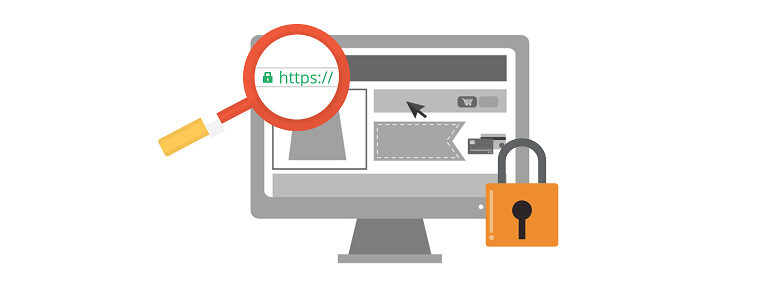How Regular SSL Monitoring Can Protect Your Website from Security Breaches and Enhance User Confidence
Protect Your Website with Regular SSL Monitoring

Introduction: The Essential Role of Regular SSL Monitoring in Website Protection
In today’s digital world, ensuring your website’s security is not just a matter of installing an SSL (Secure Sockets Layer) certificate and forgetting about it. The dynamic nature of cybersecurity threats and the ever-evolving landscape of internet security mean that SSL certificates require regular oversight to remain effective. Regular SSL monitoring is crucial to maintaining the security of your website, protecting user data, and fostering a trustworthy online environment.
SSL certificates encrypt data exchanged between your website and its users, providing a secure channel for sensitive information. However, without ongoing monitoring, even the best SSL certificates can become compromised, expired, or misconfigured. This article explores why regular SSL monitoring is vital for safeguarding your website and enhancing user confidence, outlining the risks of neglecting this practice and offering insights into effective monitoring strategies and tools.
Why Regular SSL Monitoring is Vital for Website Security
SSL certificates are essential for securing data transmitted over the internet, but their effectiveness depends on continuous monitoring. Here’s why regular monitoring is crucial for maintaining robust website security:
1. Ensuring Continuous Data Encryption
SSL certificates are designed to encrypt data, protecting it from eavesdropping and tampering. Regular monitoring ensures that your encryption remains active and effective, preventing unauthorized access to sensitive information transmitted through your website.
2. Avoiding Security Warning Messages
Expired or misconfigured SSL certificates can lead to security warnings displayed by web browsers, such as “Your connection is not private.” These warnings can deter visitors and damage your website’s credibility. Regular monitoring helps prevent such warnings by ensuring your certificates are valid and correctly configured.
3. Protecting Against Emerging Threats
Cyber threats and vulnerabilities are constantly evolving. Regular monitoring helps identify and address potential vulnerabilities in your SSL/TLS setup, protecting your website from new and emerging threats that could compromise its security.
4. Maintaining User Trust
Trust is a critical component of any online interaction. When users see that your website is secured with a valid SSL certificate, they feel confident that their data is protected. Regular monitoring helps maintain this trust by ensuring that your SSL certificates are always operational and up-to-date.
5. Improving Compliance and SEO
For many businesses, maintaining SSL certificates is a compliance requirement. Additionally, search engines like Google favor secure websites in their rankings. Regular SSL monitoring helps ensure that your website meets compliance standards and maintains its search engine visibility.
The Advantages of Regular SSL Monitoring
Implementing regular SSL monitoring offers several benefits that enhance the security, functionality, and reputation of your website. These advantages extend beyond simple certificate management and contribute to a secure online environment.
1. Proactive Issue Detection
Regular monitoring provides early warnings for issues such as impending certificate expiration, misconfigurations, or vulnerabilities. Proactively addressing these issues helps prevent security breaches and ensures that your website remains secure.
2. Minimized Risk of Downtime
An expired or misconfigured SSL certificate can lead to website downtime or errors that affect user access. Regular monitoring helps avoid these disruptions by keeping your SSL certificates valid and properly configured, reducing the risk of downtime.
3. Enhanced User Experience
A seamless and secure browsing experience is essential for user satisfaction. By regularly monitoring your SSL certificates, you ensure that users can interact with your website without encountering security warnings or access issues.
4. Increased Security and Compliance
Regular monitoring helps maintain compliance with industry regulations and standards related to data protection. It also ensures that your website adheres to best practices for SSL/TLS security, reducing the risk of non-compliance and enhancing overall security.
5. Early Detection of Configuration Issues
SSL monitoring tools can identify misconfigurations and incomplete certificate chains that may weaken your website’s security. Regular monitoring helps detect and resolve these issues before they pose a risk to your website.
How Regular SSL Monitoring Works
Effective monitoring involves a series of automated checks and alerts designed to maintain the integrity and effectiveness of your SSL certificates. These checks help ensure that your certificates are valid, properly configured, and free from vulnerabilities.
Key Features of SSL Monitoring:
- Expiration Notifications
SSL monitoring tools track the expiration dates of your SSL certificates and send notifications well in advance. This allows you to renew your certificates on time and avoid any lapses in security.
- Configuration Validation
Proper configuration is essential for SSL certificates to function correctly. SSL monitoring tools verify that your certificates are installed and configured properly, identifying issues such as missing intermediate certificates or incorrect settings.
- Vulnerability Detection
To protect against new threats, SSL monitoring tools conduct regular scans for known vulnerabilities in SSL/TLS protocols. These scans help detect potential weaknesses and ensure that your certificates remain secure.
- Compliance Reporting
Many industries have specific requirements for SSL certificate management. SSL monitoring tools provide compliance reporting to ensure that your certificates meet industry standards and regulatory requirements.
Recommended SSL Monitoring Tools
Several tools are available to help you implement effective SSL monitoring. These tools offer a range of features to manage your SSL certificates and ensure their ongoing security.
1. SSL Labs by Qualys
SSL Labs provides a free tool for analyzing the security and configuration of your SSL certificates. It offers detailed reports on certificate strengths, vulnerabilities, and potential issues, making it a valuable resource for occasional checks.
2. UpGuard
UpGuard offers SSL monitoring as part of its broader cybersecurity suite. It provides real-time alerts for SSL certificate issues, along with detailed analytics and reporting to help you maintain secure and compliant certificates.
3. CertSpotter
CertSpotter monitors SSL certificates across the web and provides notifications for changes or potential issues. It offers valuable insights into SSL certificate management and helps you stay informed about your certificates’ status.
4. StatusCake
StatusCake offers real-time SSL monitoring and performance monitoring features. It alerts you to any issues with your SSL certificates and helps you address potential problems before they impact your website.
Conclusion: The Importance of Regular SSL Monitoring for Website Security
Regular SSL monitoring is essential for maintaining the security, reliability, and trustworthiness of your website. By continuously monitoring your SSL certificates, you can prevent potential issues, maintain user confidence, and protect your site from emerging threats.
Don’t leave your website’s security to chance. Invest in regular SSL monitoring to ensure that your SSL certificates remain valid, properly configured, and effective in safeguarding your online presence.
Call to Action:
Enhance your website’s security and user trust by implementing regular SSL monitoring today. Choose a reliable monitoring tool and stay proactive in managing your SSL certificates to protect your website and deliver a secure experience for your users.




